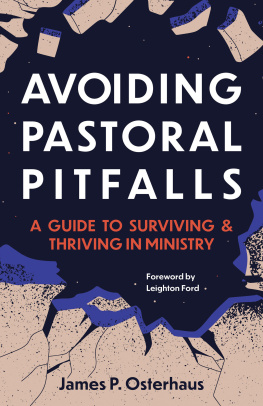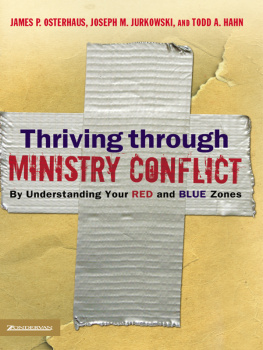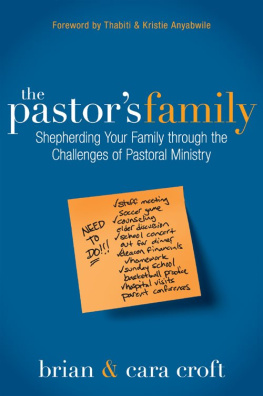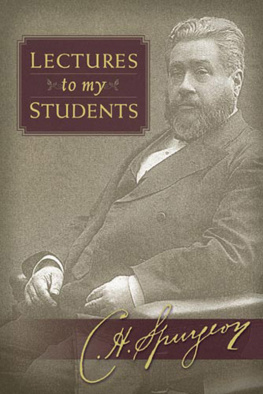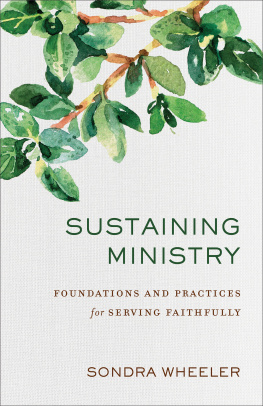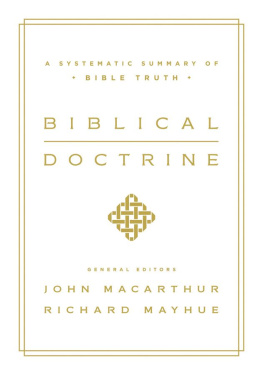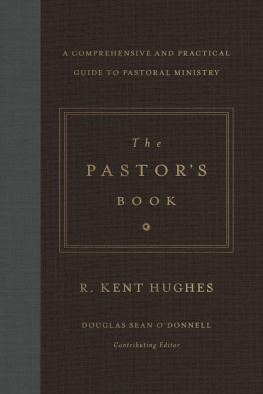Avoiding Pastoral Pitfalls: A Guide to Surviving and Thriving in Ministry (ebook edition)
All rights reserved. No part of this book may be reproduced or transmitted in any form or by any means, electronic or mechanical, including photocopying, recording, or by any information storage and retrieval system, without permission in writing from the publisher.
All Scripture quotations, unless otherwise indicated, are taken from THE MESSAGE, copyright 1993, 2002, 2018 by Eugene H. Peterson. Used by permission of NavPress. All rights reserved. Represented by Tyndale House Publishers, Inc.
Due to technical issues, this ebook may not contain all of the images or diagrams in the original print edition of the work. In addition, adapting the print edition to the ebook format may require some other layout and feature changes to be made.
Foreword
As I write this, I have a picture in my mind of a small group gathered in a spacious home in the mountains of North Carolina. It is early spring with a chilling breeze outside as the group sits huddled by a blazing fireplace. Several younger men and women are there, and two older men. One is Jim Osterhaus. The other is me.
At this time, Jim and I had known each other since we met at a church retreat in California years before. He had been a teacher in our Arrow Leadership programs, and together we had led numerous retreats for young ministry leaders, focusing especially on the inner life of the leader. The younger ones present now were part of our various retreats before.
This time, however, is different. Jim is leading, but I am not. I am there, because I have a wounded soul. I had just come through a grueling time of conflict with some difficult people. I needed care and healing, and they were there to help.
Jim remembers that as we began, I said ruefully, Jim, you are my psychiatrist. I am going to lie down on the couch! Although he is not a psychiatrist, he is a gifted psychologist and counselor. There was also no couch, but around that fire I was able to open up the depths of my soul and experience.
During those hours in the mountains as we talked, I learned much about myself and about interpersonal challenges. Looking back on the situation, I can see where I had lacked wisdom and humility. We all learned from Jim about projectionhow our critics project their own issues on others.
I have often looked back on those hours with a profound sense of gratitude for what I received and what I think the young leaders learned about themselves. I share this personal story so those who read Avoiding Pastoral Pitfalls will realize this book is not filled with the theories of an academic. Although these insights certainly are based on important theory and thought, what Jim has written has the mark of authenticity, because this content has been used and tested in literally hundreds of hours with hundreds of leaders who needed a gifted listener and guide.
So many times, when some younger leader I am mentoring has a difficult challenge needing help beyond what I can give, I have said, Call Jim Osterhaus. He can help. And he has, time and time again.
I received little guidance along these lines during my ministry education. I learned a lot about Bible, theology, and church history, but not much about understanding myself and others! My friendship and partnership with Jim have helped to make up this lacuna across the years.
Now, as a gift from the Spirit, this book will guide so many of Gods called servants as they in turn shepherd others from within their own hearts, souls, and minds.
Leighton Ford, Founding President
Leighton Ford Ministries
Charlotte, North Carolina
Introduction
What You Didnt Learn in Seminary
and Why It Matters
In the September 2020 issue of Christianity Today , Kayla Stoecklein details how her husband, who had been the lead pastor of his church for five years, slowly burned out and fell into depression and anxiety. Finally, in an act of desperation, he took his own life. Kayla writes,
Many pastors and people serving in ministry positions struggle with their mental health. And sadly, they dont always feel like there is space for them to share their struggles with their peers or congregants. Fear of losing their job, fear of losing their platform, fear of losing their voice, fear of losing respect from their peers is all a very real reality.
More and more people who minister find themselves depressed. Their marriages are often in trouble. Their families are negatively affected. Often, they have few if any close friends. And, not surprisingly, a large percentage of those who enter the ministry leave it within five years. Every month, someone leaves the ministry due to moral failure, burnout, or divisiveness in their churches. Only a small percentage of pastors say they feel happy and content on a regular basis with who they are in their spiritual life, their church, or in their home.
Over the years, I have coached and counseled hundreds of ministers from various traditions on four continents. Ive sat or walked and talked with ministers who have been nearly crushed by the burdens they experienced in ministry. What I have come to learn is that the average training of ministers across the globe is woefully deficient in those very areas that would allow them to avoid many of the pitfalls (or at least keep them from exacerbating those pitfalls). This book is an attempt to fill some of those voids.
What I Didnt Learn in Seminary
Seminaries in every religious tradition have the stated objective to raise up men and women who can effectively move forward those respective traditions, while ministering to the needsspiritual, emotional, mental, and physicalof the audiences to whom they have been called.
Over the centuries, seminaries have crafted curricula that religious leaders have judged to contain the essential elements for effective ministry: theology, hermeneutics, and homiletics. More recently, courses in human psychology, counseling, culture, and organizational processes have crept into syllabi to round out a core preparation. Even more recently, seminaries have begun to offer courses in leadership.
And yet, as I coach ministers across this country and across the traditional spectrum, I hear again and again the complaint that these pastors are ill-prepared to face the realities of day-to-day ministering. This inadequacy often appears when the newly minted minister first sits down in the church board meeting (whether it be an elder meeting, session, vestry, council, or what have you). Often the fearful thought emerges, Im the leader. What do I do now? Whats important? What s not? The moment conflict begins to develop, these thoughts intensify and panic often ensues when that conflict devolves on the pastor.
David Gortner, the director of the doctor of ministry program at Virginia Theological Seminary, conducted a fifteen-year study of students transitioning from students to pastors. He writes,
I have found a consistent pattern among Episcopal clergy of what my colleagues and I call talented but tenuous: highly creative people nonetheless lacking in self-confidence and decisiveness, who can come up with wonderful ideas but have neither the skill nor the will (nor feel the permission) to help communities bring ideas to fruition. They are kind, dedicated, and full of ideal visions of what the church could be; but they are also conflict-averse, uncertain how to manage their own anxiety, and unclear about the nature of human systems and organizations.

